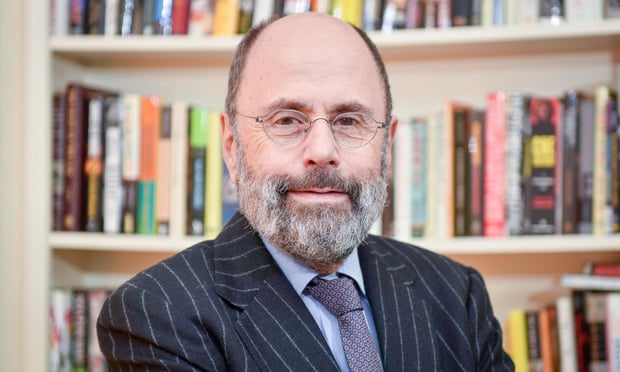Shargel Retires From the Law, Capping 49 Years of Trials
"To say that I'm somewhat burnt out would be fair," Jerry Shargel told the New York Law Journal.
January 10, 2018 at 06:16 PM
6 minute read
 Gerald Shargel. Photo: David Handschuh/ALM
Gerald Shargel. Photo: David Handschuh/ALM Gerald Shargel, whose clients ranged from mobster John Gotti to former Pennsylvania Attorney General Kathleen Kane, is retiring from the partnership at Winston & Strawn and leaving the practice of law at the end of this month.
“I've tried many, many high-profile cases. I loved trying the high-profile cases, but I don't need to try any more of them,” he said in an interview. “I don't need to and I don't want to. They're a tremendous amount of work, and to say that I'm somewhat burnt out would be fair.”
Shargel, 73, is part of a wave of retirements hitting large firms as the baby boomer generation of lawyers continues a slow-moving exit from active practice. In the next five years, 14 percent of partners at large firms will retire, and 34 percent within the next decade, according to a Major, Lindsey & Africa survey in 2016.
Among them, Shargel stands out for the prominent cases he's handled over a long career. Described in a New Yorker profile as “quite possibly the finest of his generation,” Shargel has represented mobsters such as Gotti and Salvatore “Sammy the Bull” Gravano; politicians such as Malcolm Smith and Kane; lawyers such as convicted law firm founder Marc Dreier; and celebrities such as Amanda Bynes.
It's uncommon for a lawyer of Shargel's stature to leave the law so abruptly and completely, and not at least consult on cases after withdrawing from daily practice.
Indeed, the age range of senior lawyers in full-time practice and the span of time in which they phase out their practices are both increasing, said Altman Weil law firm consultant Alan Olson. “Some lawyers retire early, but we are seeing that more seniors are practicing into their late 60s and 70s. Sometimes they are working full-time and full-go, but more often, they are extending the length of the phase-down period,” he said.
“What I'm doing is somewhat unusual,” Shargel acknowledged, adding: “Many lawyers don't retire period, they still have their guns until the time of death, and I don't want that to be me.”
'A Young Man's Game'
While some health-related issues are factors in his retirement, Shargel declined to discuss them in detail and said he remains physically active. He wants to spend time with family and his grandchildren, he said, and he looks forward to enjoying certain activities and projects in retirement.
“Trial work is a young man's game,” said Shargel, who has tried more than 130 cases. “I could feel that my skill set is not the same skill set that I had when I was 60 years old.”
He recalled that in 1977, when he was in his 30s, he represented a doctor accused of Medicaid fraud and charged with 133 counts in the Bronx. Shargel said he tried the case alone, with no paralegals and no second chair. “The jury comes back and acquits the doctor of every one of the 133 counts,” he said. “Would I be able to do that today? No, I don't think so.”
But there are prominent exceptions of lawyers who excel well into retirement age, Shargel said, pointing to U.S. District Judge Jack Weinstein of Eastern District of New York, at age 96. “He is as clear as a bell. Every sentence is perfectly formed and the subject and verb perfectly agree.”
Winston Move
Shargel led his own law firm for most of his legal career, while jumpstarting the careers of several New York lawyers who joined his firm, noted Winston partner Ross Kramer, who has practiced with Shargel for 12 years. Shargel's associates over the years have included Judd Burstein, Sarita Kedia, Henry Mazurek, Alan Futerfas, Nicholas Gravante Jr. and Jeffrey Lichtman.
Young lawyers flocked to his trials, several lawyers said. “Going to see a closing argument was like going to a concert you couldn't get to a ticket to,” said Joshua Dubin, a trial consultant who has worked with Shargel for about 15 years. “The jury would literally sit on the edge of their seat” during a Shargel close.
For a lawyer known for his representation of organized crime figures, his move in 2013 to an old-line Chicago corporate law firm, Winston & Strawn, drew headlines. But Shargel has regularly represented defendants in white-collar defense cases, from Dreier to Murray Huberfeld, founder of shuttered hedge fund Platinum Partners.
“Jerry Shargel in many ways brought the skills and tenacity of a street-fighting lawyer to the white-collar bar,” said Marc Mukasey, a former federal prosecutor and a Greenberg Traurig shareholder. “He put the skills that you use in a blue-collar case and brought them to a white-collar case.”
After his move to Winston, Shargel continued to take on intense criminal defense trials, while at the same time becoming more selective on the cases and turning away some matters, he said.
Shargel, working with several other defense attorneys at Winston, represented Kane in the lead-up to trial and at trial. Kane was ultimately convicted in 2016 of perjury and related charges. Also at Winston, Shargel and associates at the firm represented Ulster County dentist Gilberto Nunez accused of killing his lover's husband. Nunez was acquitted of murder but ultimately convicted of other charges.
“They came to us because of Jerry,” Seth Farber, co-chair of Winston's white-collar defense and investigations practice, said of the Nunez and Kane matters. Shargel “gave us a somewhat broader capability,” he said.
Farber and Michael Elkin, Winston vice chairman, said Shargel, a longtime teacher at Brooklyn Law School, embraced serving as a mentor to younger firm lawyers while also collaborating with other firm partners, allowing them to take on coveted trial roles and responsibility. Winston will recognize his career at a retirement party Thursday, with more than 150 people expected, including top litigators and current and former judges.
During retirement, Shargel said he has “certain projects that I'm seriously thinking about” and he is considering writing a book. “I always wanted a horizontal space between retirement and whenever it is I leave this Earth,” Shargel said, where “I could be active and still involved and enjoy that easy time.”
“I want a simpler life,” he said. “I can go to the movies and I can read books that I've always wanted to read and I can have lunch with friends.”
Shargel, grandfather to six, said he's also thinking about moving to California to be closer to family. His children include David Shargel, currently a partner at Bracewell, and Johanna Shargel, a former Akin Gump Strauss Hauer & Feld lawyer who has represented indigent defendants at a public interest law group in California.
On advice he would give to lawyers nearing the end of their careers, Shargel said, “Retirement is important, it's healthy, it's the stage of life that should not be ignored.”
This content has been archived. It is available through our partners, LexisNexis® and Bloomberg Law.
To view this content, please continue to their sites.
Not a Lexis Subscriber?
Subscribe Now
Not a Bloomberg Law Subscriber?
Subscribe Now
NOT FOR REPRINT
© 2025 ALM Global, LLC, All Rights Reserved. Request academic re-use from www.copyright.com. All other uses, submit a request to [email protected]. For more information visit Asset & Logo Licensing.
You Might Like
View All

Courts Beginning to Set Standards for Evidence Relying Upon Artificial Intelligence
4 minute read
NY Judge Admonished Over Contributions to Progressive Political Causes

Attorneys ‘On the ‘Move: Morrison Cohen Expands White Collar Practice; O’Melveny Brings Back Corporate Finance Partner
6 minute readTrending Stories
- 1'It's Not Going to Be Pretty': PayPal, Capital One Face Novel Class Actions Over 'Poaching' Commissions Owed Influencers
- 211th Circuit Rejects Trump's Emergency Request as DOJ Prepares to Release Special Counsel's Final Report
- 3Supreme Court Takes Up Challenge to ACA Task Force
- 4'Tragedy of Unspeakable Proportions:' Could Edison, DWP, Face Lawsuits Over LA Wildfires?
- 5Meta Pulls Plug on DEI Programs
Who Got The Work
Michael G. Bongiorno, Andrew Scott Dulberg and Elizabeth E. Driscoll from Wilmer Cutler Pickering Hale and Dorr have stepped in to represent Symbotic Inc., an A.I.-enabled technology platform that focuses on increasing supply chain efficiency, and other defendants in a pending shareholder derivative lawsuit. The case, filed Oct. 2 in Massachusetts District Court by the Brown Law Firm on behalf of Stephen Austen, accuses certain officers and directors of misleading investors in regard to Symbotic's potential for margin growth by failing to disclose that the company was not equipped to timely deploy its systems or manage expenses through project delays. The case, assigned to U.S. District Judge Nathaniel M. Gorton, is 1:24-cv-12522, Austen v. Cohen et al.
Who Got The Work
Edmund Polubinski and Marie Killmond of Davis Polk & Wardwell have entered appearances for data platform software development company MongoDB and other defendants in a pending shareholder derivative lawsuit. The action, filed Oct. 7 in New York Southern District Court by the Brown Law Firm, accuses the company's directors and/or officers of falsely expressing confidence in the company’s restructuring of its sales incentive plan and downplaying the severity of decreases in its upfront commitments. The case is 1:24-cv-07594, Roy v. Ittycheria et al.
Who Got The Work
Amy O. Bruchs and Kurt F. Ellison of Michael Best & Friedrich have entered appearances for Epic Systems Corp. in a pending employment discrimination lawsuit. The suit was filed Sept. 7 in Wisconsin Western District Court by Levine Eisberner LLC and Siri & Glimstad on behalf of a project manager who claims that he was wrongfully terminated after applying for a religious exemption to the defendant's COVID-19 vaccine mandate. The case, assigned to U.S. Magistrate Judge Anita Marie Boor, is 3:24-cv-00630, Secker, Nathan v. Epic Systems Corporation.
Who Got The Work
David X. Sullivan, Thomas J. Finn and Gregory A. Hall from McCarter & English have entered appearances for Sunrun Installation Services in a pending civil rights lawsuit. The complaint was filed Sept. 4 in Connecticut District Court by attorney Robert M. Berke on behalf of former employee George Edward Steins, who was arrested and charged with employing an unregistered home improvement salesperson. The complaint alleges that had Sunrun informed the Connecticut Department of Consumer Protection that the plaintiff's employment had ended in 2017 and that he no longer held Sunrun's home improvement contractor license, he would not have been hit with charges, which were dismissed in May 2024. The case, assigned to U.S. District Judge Jeffrey A. Meyer, is 3:24-cv-01423, Steins v. Sunrun, Inc. et al.
Who Got The Work
Greenberg Traurig shareholder Joshua L. Raskin has entered an appearance for boohoo.com UK Ltd. in a pending patent infringement lawsuit. The suit, filed Sept. 3 in Texas Eastern District Court by Rozier Hardt McDonough on behalf of Alto Dynamics, asserts five patents related to an online shopping platform. The case, assigned to U.S. District Judge Rodney Gilstrap, is 2:24-cv-00719, Alto Dynamics, LLC v. boohoo.com UK Limited.
Featured Firms
Law Offices of Gary Martin Hays & Associates, P.C.
(470) 294-1674
Law Offices of Mark E. Salomone
(857) 444-6468
Smith & Hassler
(713) 739-1250






